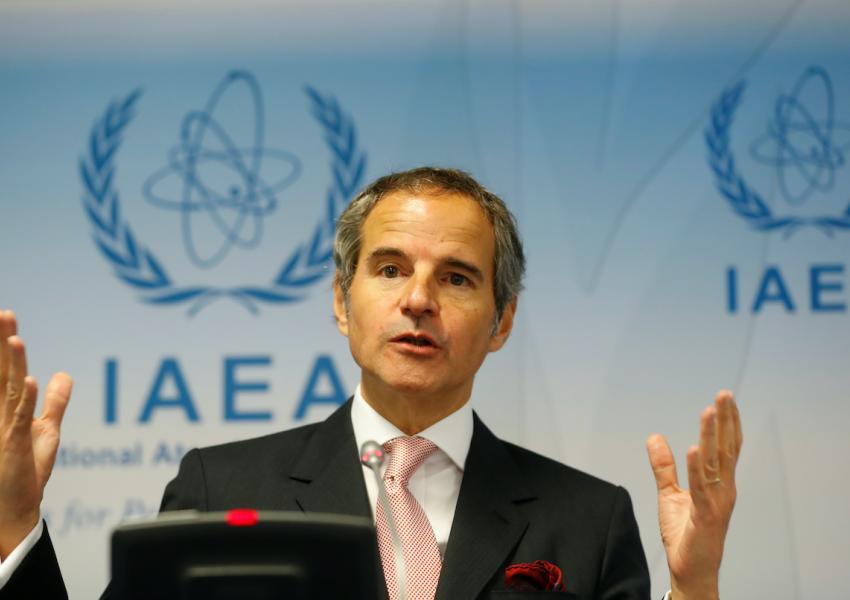
UN Nuclear Chief Says US Return To Iran Deal Possible But Complicated
The chief of the United Nations’ International Atomic Energy Agency Rafael Mariano Grossi said Tuesday [March 16] that a US return to Iran’s 2015 nuclear deal with world powers remains possible. Addressing the European parliament by video-link, Grossi said that negotiations were needed involving both Iran and the United States to revive the JCPOA, Joint Comprehensive Plan of Action. "It takes two to tango," he noted.
The IAEA director-general said that while the new administration of President Joe Biden wanted to "come back" into the JCPOA, there were issues requiring clarification: "It is difficult, but not impossible."
In Tehran, government spokesman Ali Rabiei in his weekly press conference Tuesday also struck an optimistic note. He said "desperate efforts" to make Iran "collapse" were coming to an end, and that Iranians should expect an end to "the winter of the JCPOA" soon.
While Biden and Iranian President Hassan Rouhani have both expressed a desire to revive the JCPOA, there has been obvious response to Grossi’s called for in December for agreement on synchronizing moves. Rabiei said Tuesday that the US should return to the JCPOA "quickly" and lift its sanctions, reiterating Iran’s argument that the onus lies with the US, given President Donald Trump left the JCPOA in 2018 and imposed draconian sanctions. The Biden administration has stressed its need to consult allies and called on Iran to first reverse nuclear steps it has taken in its nuclear program since 2019 beyond JCPOA limits.
Grossi referred to the complexities that have arisen with the interplay of US sanctions and Iran stockpiling enriched uranium, enriching to 20 percent, and limiting the access of IAEA inspectors. "Even if you had a magic wand or the hand of God and said we go back tomorrow, there will be a lot of housekeeping," he said.
During a visit to Tehran on February 21, after Iran restricted IAEA inspections by suspending its implementation of the Additional Protocol to the Nuclear Non-Proliferation Treaty, Grossi reached a three-month agreement under which Tehran would keep IAEA cameras running in its nuclear facilities and supply the footage to the IAEA in three months if an agreement was reached over reviving the JCPOA. Grossi argued this would allow a period for diplomacy to revive the 2015 agreement while monitoring of Iran’s core nuclear facilities continued.
In a similar spirit, the three European signatories of the JCPOA − France, Germany and Britain − on March 4 chose not to go ahead with a resolution to the IAEA Board of Governors condemning Iran for suspending its implementation of the Additional Protocol. Tehran had warned this would face "an appropriate response" and welcomed the E3 move to drop the proposed resolution.






